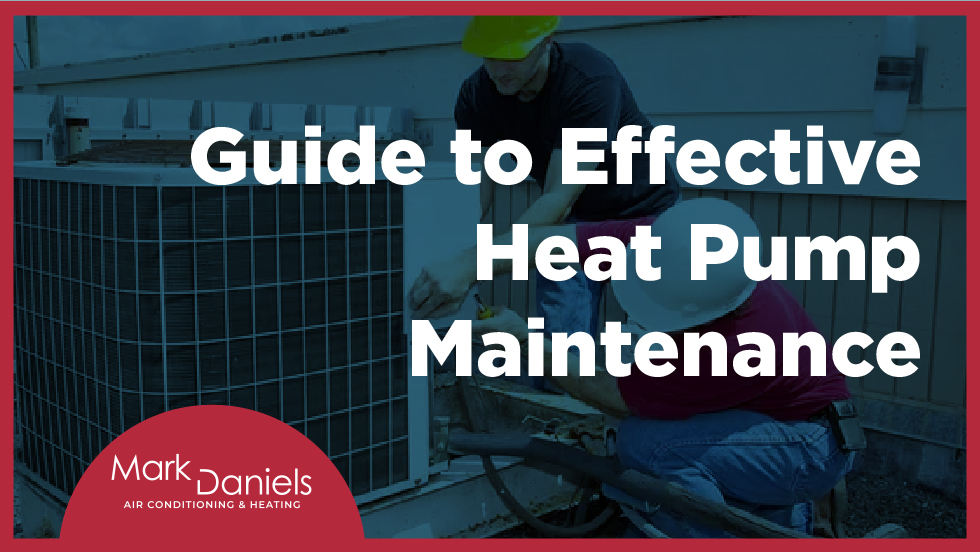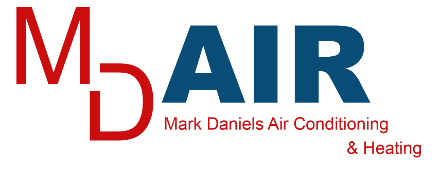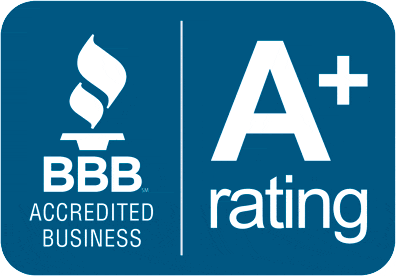Licensed | Bonded | Insured

Guide to Effective Heat Pump Maintenance
Though the Greater Phoenix area is known for its scorching summers, winters in the area are nothing to laugh at, either.
In fact, this past March turned out to be the coldest on record since the turn of the century, with average temperatures dropping into the low fifties.
If you were waiting for a reminder to do some preventative heat pump maintenance, that’s as good a sign as any!
A few simple maintenance strategies can ensure that your heater works as intended when you need it most this winter.
If you’re ready to maintain your unit’s efficiency, make sure it’s powered down and cooled off, then follow the steps below.
Clean Your Air Filter
Your heat pump’s air filter helps trap microscopic contaminants.
Dust, dirt, pollen, pet dander, and other debris get stuck in the filter instead of circulating around your home.
Not only is this ideal for your health, but it also keeps your system efficient.
However, when too much debris gathers within the filter, it hampers the system’s airflow.
Your heat pump may need to work harder to circulate air throughout your home.
The average heat pump lifespan is around 10-20 years, but a dirty air filter left unchecked can have a negative impact on this longevity.
Experts recommend checking the filter at least once every 30 days.
You may need to change it more or less often depending on your household makeup.
Clean Your Outdoor Unit
Your heat pump’s outdoor unit is exposed to the elements.
Though it’s designed to stand up to most of what nature can throw at it, this unit will function for longer if you keep it clean.
After the spring and summer growing season, make sure to trim back any landscaping that has grown too close to the unit or covered its surface.
A good rule of thumb is to keep at least 12-18 inches of clearance.
After a heavy storm during monsoon season, make sure that no debris, twigs, dirt, or mud has built up on the heat pump’s surface.
Like an air filter change, this can help prevent airflow obstructions.
If the ground under your unit ever shifts due to heavy rain, make sure your unit remains level.
Replace any missing dirt, and contact a heat pump expert if you need assistance.
Flush the Condensate Lines
Your heat pump creates a lot of condensation as it warms your home.
This water drains into various drain lines and pans to keep it from leaking inside your home.
With frequent use, these condensate lines can accumulate algae, dust, mildew, and debris.
Over time, enough of these substances can block the lines, causing an overflow indoors.
To prevent this from happening, flush the drain lines of your home heat pump around once a year.
You can do this in the same way you’d clean the drain line of your air conditioner.
Though you should check your owner’s manual for details, you’ll often need a wet/dry vac or an air compressor.
Remove any visible debris from the line with a soft-bristled brush.
Try to blow compressed air through the drain line to work it loose or use your wet/dry vac to remove the debris.
You can also pour a cup of bleach into the drain line to kill any organic matter like algae or mold.
If you’re unsure how to do this, contact a contractor.
This task is more technical than most on this list, and using too much pressure within the drain line could damage your system.
Clean the Evaporator and Condenser Coils
Most types of heat pumps have two different coils.
The evaporator coil sits inside your home, while the condenser coil sits in your outdoor unit.
Both of these coils need to be clean to do their jobs.
A layer of dust and debris can make it more difficult for them to transfer heat, which can make the entire heat pump less efficient.
To clean your evaporator coil, use a soft-bristled brush to remove any visible dirt or debris.
Compressed air may also help. You can use a mild detergent and a soft sponge to clean the surface of them.
To clean your condenser coil, remove the surface panel of your outdoor unit.
You can use a vacuum attachment to clean the metal fins, or you can use your garden hose to rinse them down.
If you want to be thorough, you can even grab a specialized HVAC coil cleaner from a local home improvement store.
Get Professional Heat Pump Maintenance
Maintaining a heat pump on your own is always a smart move, as it helps you keep the unit clean and functional for longer.
However, it’s impossible to do all of the in-depth maintenance tasks your heat pump needs without technical knowledge.
That’s where an expert comes in.
Calling for professional, full-service heat pump maintenance twice a year can optimize your system and protect it from damage.
The average heat pump service will include things like the following:
- Checking for duct leaks
- Inspecting any electronic components
- Checking and cleaning the fans, blower wheels, and motors
- Monitoring coil temperatures
- Testing the programmable thermostat and startup controls
- Examining thermostat sensors
- Checking ducts for leaks, dirt, and damage
- Lubricating mechanical components
- Inspecting belts and pulleys
- Measuring refrigerant levels
- Checking system disconnect switches for electrical hazards
An experienced professional can also clean the system’s drain lines and coils if you don’t feel comfortable doing that on your own.
By performing all of these inspections, your contractor can catch small issues early and prevent expensive repairs in the future.
Optimize Your Heat Pump Today
If you’re hoping to keep the cold at bay this winter, the maintenance steps above are a great place to start.
With some basic cleaning and checks, you can ensure that your unit is ready for the worst of the season’s cold!
To leave your heat pump maintenance to the pros, partner with the team at Mark Daniels Air Conditioning & Heating.
As a locally owned brand with 30 years of experience, we pride ourselves on offering quality services at a fair price.
Contact us today to request service.
Gilbert heating repair needed? If you’re hoping to keep the cold at bay this winter, our team at Mark Daniels Air Conditioning & Heating offers expert maintenance and tailored insight to your HVAC needs. Call (480) 571-7219 or request service online now!



